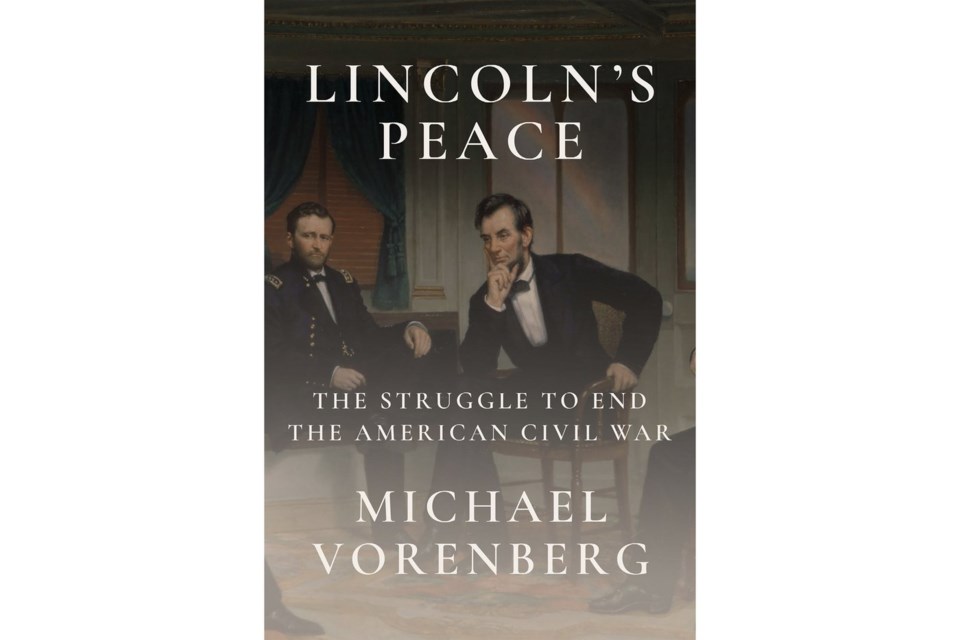“Lincoln’s Peace” offers a pair of fascinating what ifs.
Had the Union maintained a larger and stronger post-Civil War occupying army, could it have banished all the residual slavery practices and prevented the formation of the and other hate groups that crawled out from the Confederacy ruins?
And how different might the outcomes have been in Iraq and had we thought harder about what we were going to do to resolve the issues that triggered armed conflict?
As Michael Vorenberg notes in “Lincoln’s Peace,” the end of a war does not necessarily signal the outbreak of peace.
But we Americans are an impatient people; we like to smash our way to victory and go home as quickly as possible, buoyed by the belief that we have vanquished evil, installed goodness and inspired World War Il liberation-of-France-level jubilation.
Never mind that scenario hasn’t happened since; we haven’t paused enough to learn. And the Civil War is the conflict that keeps on teaching.
In January, for example, Knopf published Richard Carwardine’s “Righteous Strife: How Religious Nationalists Forged Lincoln’s Union,” which explores the roles of faith-based nationalism during the Civil War and traces Christian nationalism to present-day issues such as abortion and gender identity.
The most potent lesson in Vorenberg’s “Lincoln’s Peace” is to carefully consider all the issues at stake in planning what to do after the fighting stops.
Abraham Lincoln wanted to “let them (the defeated Southern states) up easy” but as Vorenberg shows in great detail, enough unrepentant Southerners merely switched to other tactics to keep Blacks powerless, in poverty and subjugated in every way to the white majority.
Lincoln’s successor, Andrew Johnson, fervently wanted to declare victory and move on and he prevailed in that strategy, reducing the occupying Union Army force until it was ineffectual.
If the book has a fault, it’s the meticulous detail and profusion of names, even of minor characters who could be named by title alone. In an interview, Vorenberg said he wanted a timeline and list of characters, but publisher Knopf demurred. (Note to Knopf: Take his advice next time.)
Without dwelling on it, "Lincoln’s Peace" mentions multiple times another failure during the Civil War that reverberates today: Newspapers during the Civil War often presented starkly different accounts of the war, depending on whether they published in Southern or Northern cities.
Now 160 years after the Civil War, many of our fellow citizens accuse our legacy news media of also contouring their reporting to mesh with their own institutional viewpoints and those of their perceived audiences.
Vorenberg and Carwardine’s books remind us of the cost in lives in failing to resolve — peacefully and diplomatically — arguments with deep social and moral implications.
A clear conclusion is that it will take Lincoln’s ideals and general decency to get us out of the strife we Americans have created for ourselves today.
___
AP book reviews:
Jeff Rowe, The Associated Press




